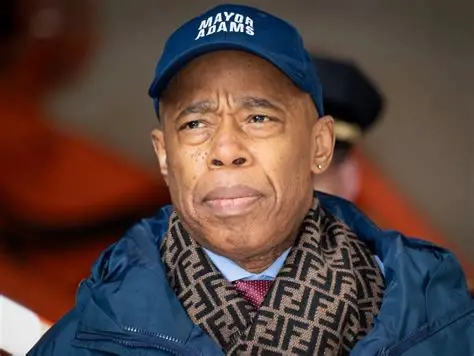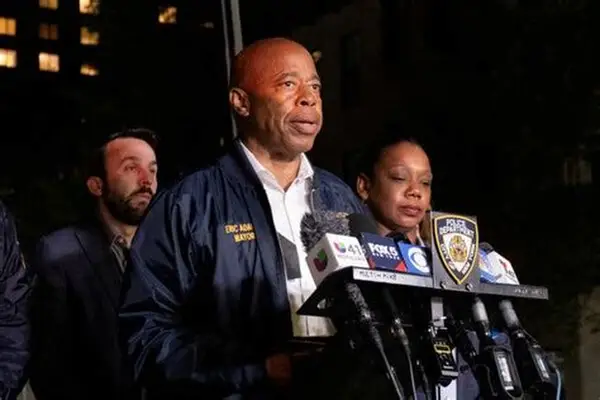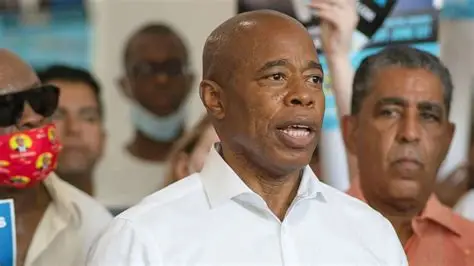Adams was elected mayor in 2021, becoming the second Black mayor of New York City after David Dinkins.
In a city where political vertigo never stops, the story of Eric Adams, the current mayor of New York, stands as one of the most unusual and emblematic of the 21st century. Born into a working-class family, a survivor of police violence, he is a former police officer, activist, politician, and now a central figure in a new chapter of institutional turbulence. Adams has traversed a path as complex as the city he governs today.Beginnings:
Eric Leroy Adams was born on September 1, 1960, in Brooklyn, and grew up in the humble neighborhoods of Brownsville and South Jamaica, in Queens. He was one of six children raised by a single mother who cleaned houses to support the family. His environment, marked by poverty and discrimination, did not prevent Adams from developing a strong will to overcome adversity. At 15 years old, he was brutally beaten by police after being unjustly arrested. Far from becoming a passive victim of the system, that episode became the driving force behind his public vocation. "I wanted to join the police to change it from within", he has said on numerous occasions. He obtained his bachelor's degree in Criminal Justice from John Jay College and a master's degree in Public Administration from Marist College.Police officer, activist, and politician
For 22 years, Adams served in the New York City Police Department (NYPD), where he attained the rank of captain. He was also a co-founder of 100 Blacks in Law Enforcement Who Care, an organization that denounced police brutality and racial profiling. His activism from within the system projected him as a critical voice with authority. In 2006, after retiring from the NYPD, Adams formally entered politics and was elected state senator for Brooklyn in 2007. There he stood out for legislating in favor of tenants' rights, civil liberties, and gun control. In 2013, he became the first African American to preside over the Brooklyn district, a position he held for two terms. From there, he built his image as a manager committed to safety, public health, and social innovation. In 2021, Adams won the Democratic primary and subsequently the general election to become the second African-American mayor in New York's history. His speech focused on restoring safety on the streets, revitalizing the post-pandemic economy, and reducing the city's structural inequality. During his first months, he strengthened police patrols in the subway and promoted a "zero tolerance" line against street crime. However, his tough approach generated divisions, especially among progressive sectors. Adams also became a frequent figure in the media, amid controversies over his direct style, his links to business sectors, and his ability to balance populist discourse with elite alliances. In September 2024, his administration was shaken by an unprecedented scandal: Adams was formally charged with federal charges including bribery, wire fraud, and acceptance of illegal donations from the Turkish government. According to the authorities, he would have received financial favors in exchange for influencing tenders and municipal permits. Despite the political and media noise, in April 2025 a federal judge dismissed the charges, after the Department of Justice considered that there was not enough evidence to sustain the case. However, the political blow had already had consequences. Several advisors resigned, public trust diminished, and Adams decided to take an unexpected turn: on April 3, he announced that he would not seek re-election under the Democratic Party. Instead, he will seek a second term as an independent candidate, an unusual move not seen in the city since 1969.The future of an unstoppable politician
At 65 years old, Eric Adams presents himself as a symbol of urban resilience. With a biography that defies stereotypes, African-American, vegan, spiritual, obsessed with health and efficiency, he is a politician who sparks passions and rejections in equal measure. In the coming months, he will face a decisive election. The mayor who promised to "get the city back on track" after the pandemic will now have to convince the electorate without the support of his own party. Not only his political future, but also the course of one of the world's most influential cities will depend on his ability to rebuild trust, forge alliances, and reconnect with the citizenry.“When I hang up the gloves. People will say: listen, he was a real bald brother with earrings who did what he had to do as mayor of New York City,” is one of Adams' iconic phrases.





 Spanish
Spanish








